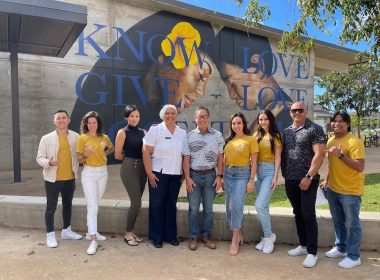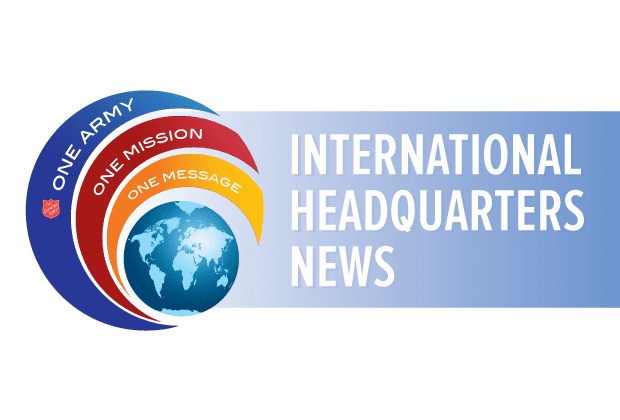Sessions address concerns, collaboration, corruption
How can The Salvation Army serve suffering humanity in the 21st century?
International Headquarters (IHQ) dissected this conundrum into 12 ‘Global Conversations’ at the USA National Social Service and Disaster Management Conference March 24-28 in an effort to drive forward The Salvation Army’s ministries.
Over 275 officers, soldiers and employees from around the world took part in Global Conversation sessions, which included topics from “How can we measure the impact of our work?” to “How can one Army develop comprehensive solutions to international problems?”
Others joined the discussion online and via social media using the hashtag #globalconversation. The 419 online participants spent an average of nearly 90 minutes engaged in interactive dialogue.
One speaker presented a paper on each topic, followed by a few brief responses from a selected panel of delegates. Each session then concluded with a round table discussion of the issue. “Today The Salvation Army understands that charity and goodwill are simply not enough,” said Colonel Geanette Seymour, director of the International Social Justice Commission, during one session. “Effectiveness for the Army requires that conscience and conviction spur us to social action, where mercy meets the cause of justice in the world; a world where the wealthiest 1 percent have income equivalent to the poorest 60 percent; where more than 1 billion people live on less than $1 per day.” Colonel Hannelise Tvedt, Netherlands and Czech Republic Territory, relayed concerns from delegates who contended that rotating leadership makes it difficult to engage communities long-term. “The challenge is that officers and sometimes staff move on after perhaps only two years,” Tvedt said. “Building relationship is a long-term process.” Colonel Peter Kwenda, Zimbabwe Territory, moderated a session on how to integrate employees into the mission of The Salvation Army. He noted a discrepancy between principle and practice. “I have noticed that in many cases we are not engaging employees,” Kwenda said. “In my territory, 99 percent of the board members are officers. If we bring employees into our decision-making, we will more fully engage them. They will be able to be more involved in our mission.” General André Cox, The Salvation Army’s international leader, issued a stern call for self-evaluation in his response to the 12 sessions. In order to fulfill its mission, Cox said The Salvation Army needs to wholeheartedly address corruption. “We need to ensure that corruption is banished,” Cox said. “We have to recognize, sadly, that good and evil are present in The Salvation Army. But woe betide any individual found to be corrupt. We are reviewing our procedures. That will include every level of leadership. No one is above the law.” Whether dealing with finances or children’s safety, Cox recounted the need for transparency and accountability, even if it comes at a cost. “We don’t need to protect the reputation of The Salvation Army,” Cox said. “We need to do the right thing.” Several delegates emphasized the need for more partnerships, both internal and external, to increase the impact of their work. Jacquelyn Hadley of The Bridgespan Group, which focuses on global development and organizational transformation, implored leaders of The Salvation Army to “leverage [its] impact,” as in partnerships through the United Nations’ Millennium Development Goals and its own Pathway of Hope initiative. “We are going to have to up our game if we are going to significantly continue to impact community in the days and years ahead,” Cox said. “The impact of our Army can be much greater if we learn to collaborate in strategic partnership.” “So what now?” asked Major Dean Pallant, Global Conversation coordinator, at the closing plenary session. IHQ required each delegate to submit a 500-word reflection upon returning home, detailing what they learned and plan to apply. Added Commissioner Gerrit Marseille, international secretary for Program Resources at IHQ: “Let’s keep the conversation going.” _____________________________________
Read the papers and be part of the discussion here











